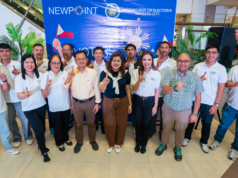Thus, said Dr. Arsenio Balisacan, chair of the Philippine Competitive Commission, during a press conference at the Regional Scientific Meeting of the National Academy of Science and Technology, Philippines (NAST-Phl) at the Royce Hotel and Casino here on Wednesday.
Balisacan said safety nets should be made to mitigate the impact of the Tax Reform for Acceleration and Inclusion (TRAIN) Law on the poor and marginalized.
“That’s where you need a very supportive fiscal policy that would provide the kind of safety nets,” he said. But we should not lose focus on getting the economy going,” he added.
Balisacan said poverty alleviation should address the basic fundamentals. He said we must look at the data that pertains to a long period of time and not just in the last two years.
Balisacan said the problem of poverty which he presented goes far beyond the last two years because unresponsiveness of poverty reduction to the rapid economic growth started decades ago.
What is structurally problematic in our economy is somehow bypass by economic growth, he said.
“When you look at the experiences of our neighbor countries, at the time when their economies were growing rapidly for decades in the 80s, 90s of the economic millennium, the fast pace of the economic expansion was also associated with rapid reduction of poverty,” he noted.
Balisacan said there is a “problem in the way we are approaching economic development and we somehow neglected industries. This is contrary to what was experience by other countries.”
“Our industry is declining with relative importance at a very low level per capita income as compared to other countries where that decline would be associated at very high level of development especially in the rich countries today,” he pointed out. “That’s where the services sector rather than the industry is driving the overall economy. That’s problematic because in the experiences of other countries, it is the manufacturing industry that opens up high quality employment for the unskilled and semi-skilled labor.”
“When the valve is not open wide enough to create opportunities, unskilled labor is trapped in agriculture because of low productivity in agriculture or in formal sectors like services, then they have nowhere to go,” he explained. “So, the issue is not just about TRAIN, it is something more fundamental than that.”
But what are the fundamentals? he asked. “Looking from the experiences of our neighbors what’s the quality of our institutions (educational system)? What’s the quality of our governance? What’s the quality of our infrastructure? What is the peace and order problem in our country? What is the level of stock of our human capital of skills or knowledge (graduates)? If we can address those issues, I think we will regain those lost grounds,” Balisacan said.
“I’m not focusing on the very short term. I’m looking at the more fundamental sources of that poverty,” he said.
The government’s development strategy program is addressing that today with the Philippine Development Plan. It identified all the ailments, he said.
“But now we have to aggressively implement that and we need advocacy to make sure that the plan is implemented because it addresses the fundamental question of infrastructure that this government is prioritizing,” he said.
“Every assessment done by a third party or an external research or investment organizations or investors coming in, they see infrastructure as very problematic, not just the quantity but the quality of our infrastructure,” he said. “Not just highways, railways, airports but also telcos, water, electricity and other utility services that business would need to thrive,” he added.
Balisacan is an economist with extensive high-level policymaking practice and a well-recognized expert in Asia on economic development, poverty and inequality, and political economy of policy reforms.
Prior to his appointment as the first Chairman of the PCC in January 2016, he served as the Economic Planning Secretary in the Cabinet of President Benigno S. Aquino III and, concurrently, the Director- General of the National Economic and Development Authority (NEDA) where he carried out policies and programs to facilitate inclusive economic growth, employment creation, and poverty reduction. In his capacity as NEDA Director-General, he served as the first Chairperson of the Boards of the Philippine Statistics Authority and the Public-Private Partnership Center of the Philippines.




